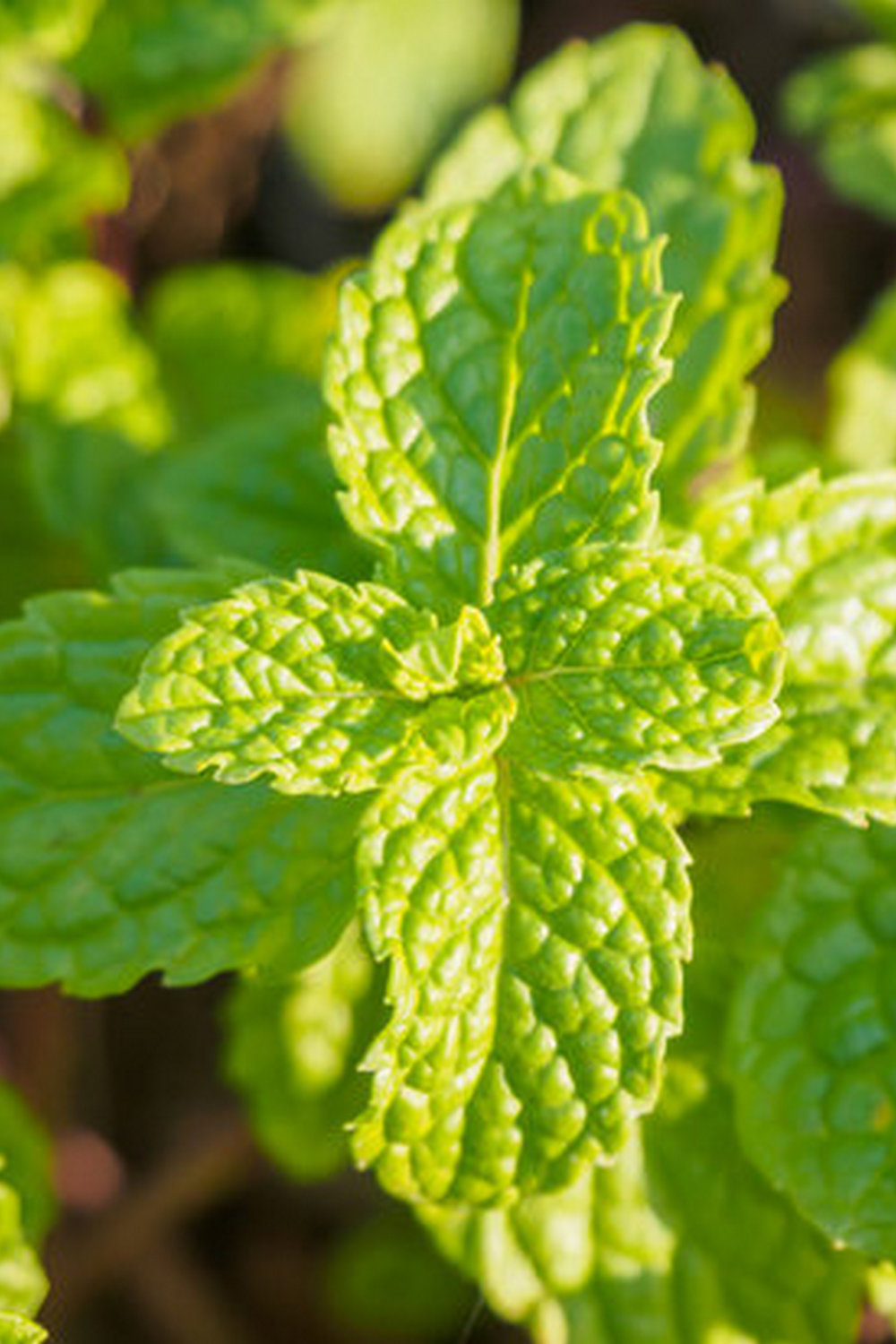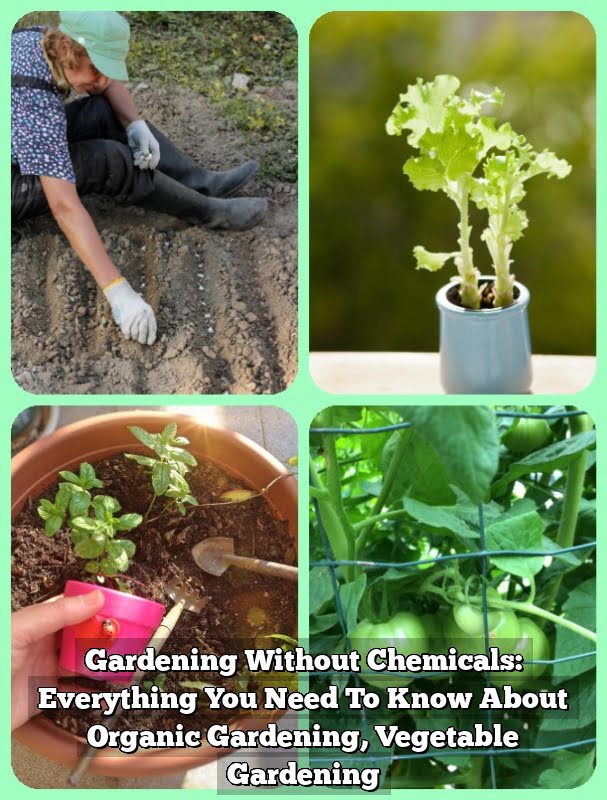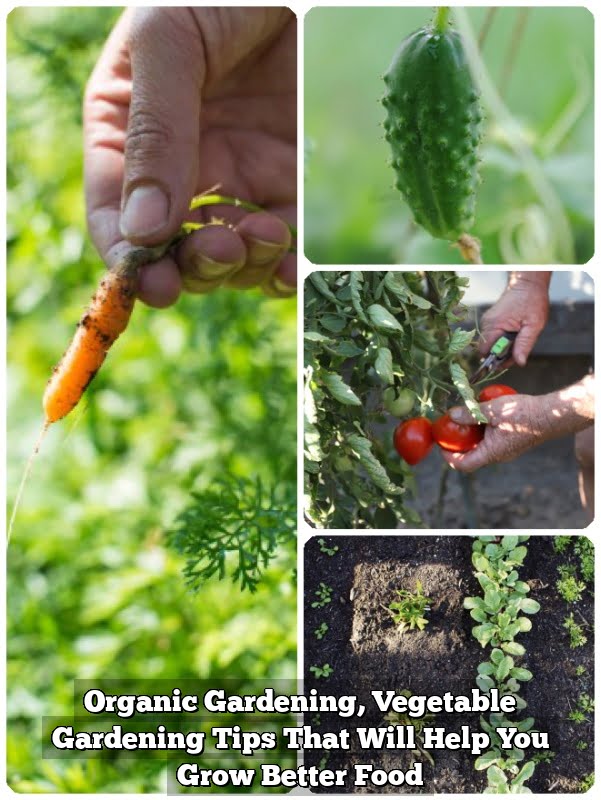Vegetable gardening plays a crucial role in promoting self-sufficiency, sustainability, and overall well-being. Whether you have a small plot in your backyard or a few pots on your balcony, planting and growing your vegetables can have numerous benefits for both individuals and the community as a whole. From health advantages to financial savings, there are countless reasons why vegetable gardening is essential in today’s world.
Not only is vegetable gardening a popular pastime today, but it also has an extensive history dating back to ancient times. Throughout the centuries, individuals have cultivated their own vegetables for sustenance and survival. Understanding this rich history can provide valuable insights into the importance of growing our food and taking control of what we put into our bodies.
In this article, we will explore the various benefits that come with vegetable gardening, including its impact on personal health, environmental sustainability, financial savings, educational value for all ages, physical activity promotion, mental well-being enhancement, and community building through sharing harvested produce. By the end of this discussion, you will understand why vegetable gardening is more than just a hobby – it is a critical practice that contributes to a healthier and more connected society.
History of Vegetable Gardening
Vegetable gardening has been a practice dating back to ancient times, with evidence of cultivation found in civilizations like Mesopotamia, Egypt, and China. These early gardeners realized the importance of growing their own produce for sustenance and survival. The idea of self-sufficiency through vegetable gardening continued throughout history, with the concept evolving as new tools and techniques were developed.
Through the centuries, vegetable gardening became not only a means of survival but also a source of pleasure and pride for many individuals. In medieval times, gardens were often considered a luxury reserved for nobility, while in more recent history, community gardens have sprouted up in urban areas as a way to address food scarcity issues.
Today, with the resurgence of interest in organic produce and sustainable living practices, vegetable gardening has once again become a popular hobby for people of all backgrounds.
In modern-day society, awareness about where our food comes from and how it is grown has spurred a renewed interest in vegetable gardening. People are increasingly turning to homegrown vegetables due to concerns about pesticides, GMOs, and environmental impact. This shift towards growing one’s own food demonstrates not only a desire for healthier eating habits but also a deeper connection to the earth and an understanding of the benefits of sustainability.
Health Benefits of Growing Your Own Vegetables
Improved Nutrition and Health
Growing your own vegetables ensures that you have access to fresh, nutritious produce. The fruits and vegetables from grocery stores may lose some of their nutritional value during transportation and storage. By picking vegetables straight from your garden, you can enjoy them at their peak freshness and nutrient content.
This not only enhances the taste but also maximizes the health benefits you receive from consuming them. Eating a variety of homegrown veggies can help boost your immune system, improve digestion, and lower the risk of various chronic diseases.
Reduced Exposure to Harmful Chemicals
When you grow your own vegetables, you have full control over what goes into the soil and onto your plants. Many commercial farms use pesticides and chemical fertilizers to protect crops from pests and promote growth. By avoiding these chemicals in your vegetable garden, you can reduce your exposure to potentially harmful substances. Organic gardening practices like composting, mulching, companion planting, and using natural pest control methods can help you grow healthy vegetables without relying on synthetic chemicals.
Promotes a Healthy Lifestyle
Maintaining a vegetable garden requires physical activity such as digging, planting, weeding, watering, and harvesting. This active engagement with nature not only burns calories but also promotes flexibility, strength, and cardiovascular health. Spending time in the garden can be therapeutic and stress-relieving for many people.
The connection with nature has been shown to reduce anxiety, improve mood, and increase overall well-being. By growing your own vegetables, you are not only nourishing your body but also nurturing your mind and spirit.
Sustainability
Vegetable gardening is not only beneficial for our health and wallets but also plays a crucial role in promoting sustainability and helping the environment. By growing our own vegetables, we can reduce our carbon footprint, limit the use of harmful pesticides and fertilizers, and contribute to biodiversity preservation. Here are some ways in which vegetable gardening helps the environment:
- Reducing food miles: When we grow our own vegetables, we are cutting down on the distance that our food travels from farm to plate. This reduces the emissions associated with transportation and helps lower our carbon footprint.
- Promoting biodiversity: Vegetable gardens provide a habitat for a wide variety of insects, birds, and other wildlife. By creating diverse ecosystems in our own backyard, we can help support local biodiversity and create a more sustainable environment.
- Conserving water: Home vegetable gardens typically use less water than large-scale agricultural operations. By practicing water-efficient gardening techniques such as mulching, drip irrigation, and rainwater harvesting, we can conserve this precious resource and help mitigate water scarcity issues.
Engaging in vegetable gardening is not just about reaping the benefits of fresh produce; it’s also about making a positive impact on the planet. By cultivating our own vegetables, we have the power to make environmentally conscious choices that contribute to a healthier ecosystem for future generations. Next time you step into your garden to tend to your plants, remember that you are not just growing food – you are also nurturing the environment.
- Reducing waste: Vegetable gardening allows us to compost organic matter such as kitchen scraps, garden trimmings, and fallen leaves. Composting enriches the soil with essential nutrients while diverting waste from landfills and reducing methane emissions.
- Carbon sequestration: Plants absorb carbon dioxide during photosynthesis, helping offset greenhouse gas emissions that contribute to climate change. By maintaining a vegetable garden filled with lush greenery, we can actively participate in carbon sequestration efforts right at home.
Financial Benefits of Vegetable Gardening
Reducing Grocery Expenses
One of the key financial benefits of vegetable gardening is the significant reduction in grocery expenses. By growing your own vegetables, you can slash your produce costs and enjoy fresh, organic produce without breaking the bank.
Whether you have a large backyard or just a small balcony, there are various ways to grow vegetables that can help offset your grocery bills. In addition to saving money on buying vegetables from the store, you also have the added benefit of knowing exactly where your food comes from and how it was grown.
Opportunities for Selling Surplus Produce
Another financial advantage of vegetable gardening is the potential to generate income by selling surplus produce. Many avid gardeners find themselves with an abundance of fresh vegetables during peak harvest seasons, which they can sell at farmers’ markets, through community-supported agriculture (CSA) programs, or directly to neighbors and friends.
This extra income can not only help cover the costs of gardening supplies and tools but also provide a source of extra cash that can be used for other household expenses or saved for future investments.
Tax Benefits and Incentives
Additionally, there are tax benefits and incentives associated with vegetable gardening that can further boost your financial savings. In several regions, individuals who grow their own food may be eligible for tax deductions or credits related to home gardening expenses.
Furthermore, some local governments offer incentives such as reduced water rates or property tax discounts for residents who incorporate sustainable gardening practices like rainwater harvesting or composting into their vegetable gardens. By taking advantage of these financial perks, vegetable gardening not only becomes a rewarding hobby but also a wise financial decision that pays off in more ways than one.
By considering all the financial benefits mentioned above, it becomes evident why vegetable gardening is important not just for personal well-being but also for economic sustainability in households and communities alike.
Educational Value for Children and Adults
Vegetable gardening offers significant educational value for both children and adults. For children, being involved in gardening activities can provide a hands-on learning experience about plant life cycles, the importance of soil health, and the role of pollinators in food production. It also teaches responsibility as they care for their plants and watch them grow. Gardening can spark an interest in science and sustainability early on, setting a foundation for lifelong learning.
Adults can also benefit from the educational aspects of vegetable gardening. For those who are new to gardening, it provides an opportunity to learn practical skills such as seed starting, transplanting, and proper watering techniques.
Understanding how to grow your own food can also lead to increased awareness about where our food comes from and the effort that goes into producing it. Moreover, gardening fosters a sense of connection to nature and the environment, encouraging a deeper appreciation for the natural world.
Research has shown that engaging in activities like vegetable gardening can improve cognitive functions and overall mental well-being in both children and adults. The process of planning a garden, caring for plants, and harvesting produce can be mentally stimulating and rewarding.
Additionally, spending time outdoors in the fresh air and sunshine while tending to a garden has been linked to reduced stress levels and improved mood. This highlights why vegetable gardening is not only important for physical health but also for mental health and overall well-being.
| Educational Value | Benefits |
|---|---|
| Children | Hands-on learning experience about plant life cycles, responsibility, science knowledge |
| Adults | Practical skills development, increased awareness about food production processes |
How Vegetable Gardening Promotes Physical Activity and Mental Well-Being
Engaging in vegetable gardening not only provides fresh produce for your table but also promotes physical activity and mental well-being. Tending to a garden requires regular maintenance tasks such as planting, watering, weeding, and harvesting. These activities involve physical labor that can help improve strength, flexibility, and overall fitness. Whether digging the soil, pulling weeds, or carrying watering cans, gardening keeps individuals active and moving, which contributes to better physical health.
In addition to the physical benefits, vegetable gardening has been shown to have positive effects on mental well-being. Spending time outdoors surrounded by greenery and fresh air can reduce stress levels and promote relaxation. The act of caring for plants and watching them grow can be rewarding and therapeutic.
It allows individuals to connect with nature and disconnect from the stresses of daily life. Many gardeners find solace in their gardens, creating a sense of peace and mindfulness as they immerse themselves in the nurturing process.
Furthermore, vegetable gardening can also boost self-esteem and provide a sense of accomplishment. Successfully growing fruits and vegetables through hard work and dedication can instill a sense of pride in one’s abilities. The satisfaction of seeing seeds sprout into healthy plants and eventually produce edible crops can be immensely gratifying.
Overall, vegetable gardening offers a holistic approach to improving both physical health through activity and mental well-being through emotional benefits. This dual impact makes gardening an essential practice for fostering a balanced lifestyle in today’s world.
Community Impact
One of the key reasons why vegetable gardening holds immense importance is its ability to create a sense of community and promote sharing among individuals. When individuals grow their own vegetables, they often end up with an abundance of produce that they may not be able to consume entirely on their own. This surplus can be shared with neighbors, friends, family, or even donated to local food banks or shelters.
By sharing the harvest from vegetable gardening, people contribute to building a stronger sense of community and supporting those in need. This act of sharing fosters connections between individuals and promotes a spirit of generosity and cooperation. In times when access to fresh produce is limited for some members of society, sharing the bounty from vegetable gardens can make a significant impact on improving food security and overall well-being.
Studies have shown that participating in community gardening projects can lead to increased social interactions, reduced feelings of isolation, and greater community engagement. Whether through organized community gardens or informal sharing arrangements among neighbors, the act of coming together to share the fruits of labor from vegetable gardening can strengthen relationships and create a more cohesive and resilient community.
| Category | Data |
|---|---|
| Social Interactions | Increased through community gardening projects |
| Food Security | Improved by sharing surplus produce with those in need |
| Community Engagement | Promoted through acts of sharing harvested vegetables |
Tips for Getting Started With Vegetable Gardening
When it comes to starting your own vegetable garden, there are a few key tips that can help you get on the right track towards a successful and enjoyable experience. One of the first things to consider is choosing the right location for your garden.
Make sure the area receives an adequate amount of sunlight and is easily accessible for watering and maintenance. Additionally, it’s important to ensure that the soil in your chosen location is fertile and well-draining to support healthy plant growth.
Another crucial tip for beginner vegetable gardeners is selecting the right vegetables to grow. Consider starting with easy-to-grow vegetables such as tomatoes, lettuce, peppers, and zucchini, which are ideal for beginners and tend to thrive in a variety of conditions. Researching the specific requirements of each vegetable, including planting depth, spacing, and watering needs, will also go a long way in ensuring a successful harvest.
In addition to proper location selection and vegetable choices, investing in quality gardening tools and supplies is essential for success in vegetable gardening. Basic tools such as a trowel, hand fork, watering can or hose, and gloves can make gardening tasks much easier and more efficient.
Furthermore, maintaining a regular watering schedule, keeping an eye out for pests or diseases, and practicing proper crop rotation techniques are all key components of successful vegetable gardening. By following these tips and putting in effort consistently over time, you will not only enjoy the benefits of fresh produce but also gain valuable skills and knowledge about sustainable living practices through vegetable gardening.
Conclusion
In conclusion, it is clear that vegetable gardening holds significant importance in today’s world for a multitude of reasons. Not only does it provide numerous health benefits by enabling individuals to access fresh and nutritious produce right from their own backyard, but it also contributes to promoting sustainability and reducing the carbon footprint through home-grown food production.
With the rising concerns about food security and environmental impact, vegetable gardening emerges as a practical solution that empowers individuals to take control of their food sources.
Moreover, vegetable gardening offers financial advantages by reducing grocery expenses and providing a source of supplementary income through selling surplus produce. Beyond the economic benefits, engaging in vegetable gardening can serve as an educational tool for both children and adults alike, fostering a better understanding of where our food comes from and cultivating essential life skills such as responsibility, patience, and resourcefulness.
This hands-on approach to learning about food production can have lasting impacts on individuals’ attitudes towards healthy eating and self-sufficiency.
Furthermore, the communal aspect of vegetable gardening should not be overlooked. By fostering connections with neighbors, friends, and local community members through sharing garden harvests or participating in community gardens, individuals can contribute to building a stronger sense of community spirit.
The act of sharing the bounties of one’s labor not only promotes goodwill but also spreads awareness about the benefits of growing one’s own vegetables. Overall, vegetable gardening plays a crucial role in addressing various societal challenges while offering personal fulfillment and well-being to those who partake in this rewarding activity.
Frequently Asked Questions
Why Is Growing Vegetables Important?
Growing vegetables is important for several reasons. Firstly, it promotes self-sustainability and reduces reliance on store-bought produce which may be treated with pesticides or chemicals. Secondly, home-grown vegetables are fresher, tastier, and more nutritious than store-bought counterparts.
Why Is Gardening Important for the Environment?
Gardening plays a crucial role in environmental conservation. It helps reduce carbon footprint by absorbing carbon dioxide and releasing oxygen during the photosynthesis process. Gardens also provide habitats for insects, birds, and other wildlife, contributing to biodiversity preservation.
Why Build a Vegetable Garden?
Building a vegetable garden at home has numerous benefits. It allows individuals to have access to fresh and organic produce right at their doorstep, promoting healthier eating habits. Additionally, gardening can be a therapeutic and stress-relieving activity that connects people with nature while saving money on grocery bills.

If you’re looking to get into vegetable gardening, or are just looking for some tips on how to make your current garden better, then you’ve come to the right place! My name is Ethel and I have been gardening for years. In this blog, I’m going to share with you some of my best tips on how to create a successful vegetable garden.





